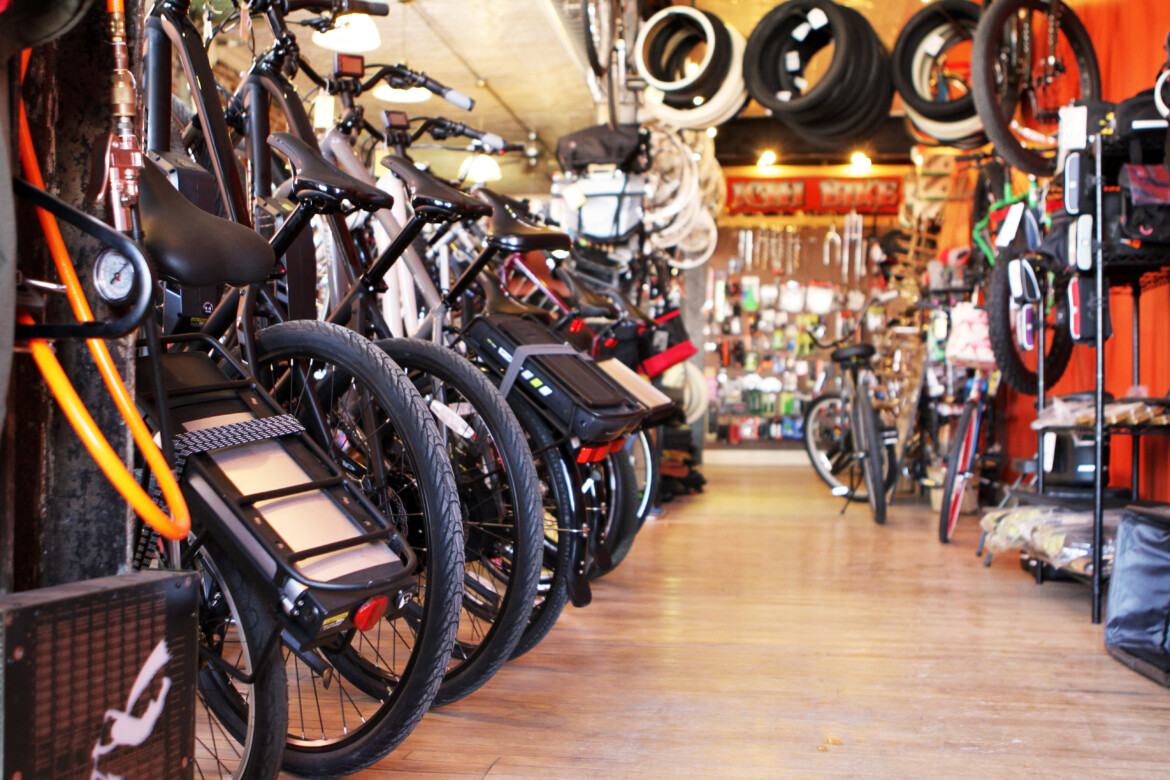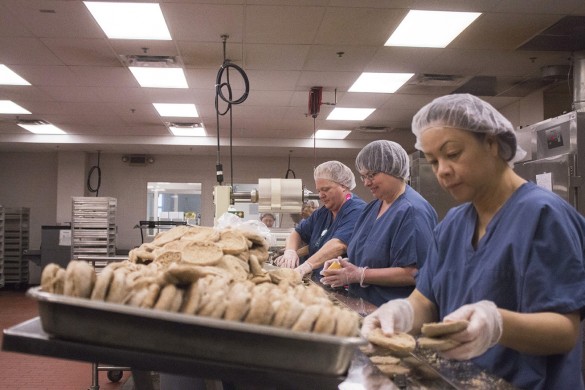“Eat local”: It’s the mantra of righteous foodies everywhere. It connects hipsters, farmers, and soccer moms. It’s the backbone of farmers markets and Whole Foods Markets alike. And it’s what customers want. In fact, according to a 2014 National Grocers Association survey, 87.2 percent of consumers said local food options were “very or somewhat important” in choosing a primary food store. Eating local is trendy. It’s empowering. And it’s more sustainable — right?
Not entirely, as John Hardy, a law student, discovered. While studying at Drake University in Des Moines, Hardy worked on an initiative for the city called, “Healthy Helpings: Harnessing the Power of School Nutrition.” His team presented to the Des Moines Area Metropolitan Planning Organization and Greater Des Moines Partnership to persuade them to invest in local food and kids’ health. The “Healthy Helpings” report offered to subsidize local farms by helping them partner with elementary school lunch programs. It was built on a simple notion: Local food is more sustainable.
“We started out thinking, ‘How do we get more local food on the lunch tray?’ [It was] based on the common assumption that the fewer miles the food travels, the less greenhouse gas emissions,” Hardy says. But as the research rolled in, Hardy and his partner found glaring holes in an everyday belief. “We found that some of these basic assumptions are not always true,” Hardy says, “and local food is not always better or more sustainable.”
According to a 2015 report from the U.S. Department of Agriculture Economic Research Service, sustainability comes down to efficiency. The report’s conclusion? Local food actually produces a larger carbon footprint because transportation is often less efficient than foods marketed through commercial outlets.

It sounds contradictory, but it’s true. Yes, that farmers market apple traveled fewer miles than the ones at your chain grocery store. But to measure the true environmental impact of each apple, you have to consider the complete life cycle of each piece of food — the production, the transportation, and the disposal.
If a small-town Kansas farmer makes 100 trips transporting small batches of Honeycrisp apples to his local market, it seems eco-friendly — he’s not traveling far. But a large California company with hefty equipment can transport more Honeycrisp apples to that Kansas town in one cross-country trip than that local farmer can haul in his 100. It can also handle orders more quickly, efficiently, and on better systems. At the end of the day, the big guy traveling across the country uses less energy to transport the same goods.
“If multiple small farms are all individually buying utilities, food, seed, and transportation, it’s just not economically efficient,” says Shellye Suttles, an agricultural economist with the USDA Economic Research Service. And lack of efficiency means it’s not sustainable either.

For consumers, these setbacks raise a moral dilemma and raises questions about well-intentioned grassroots efforts. If local food isn’t more eco-friendly, is it still worth fighting for?
For many, the answer is a resounding yes. When done right, localized food systems have countless advantages to society, environment, and health. Empirical research published in Local Food Systems by Christopher L. Waltz found that localized food systems can boost employment and income in communities. And the local food movement raises a new consciousness about where food comes from and how it’s made. Localized food has natural health benefits, too: it can forgo preservatives needed to survive long, time-consuming travel.
The trend also fosters community. In many towns, farmers markets serve as a community gathering. They add vibrancy to city life. Many of the biggest and best farmers markets are in the Midwest. Take one stroll around the nationally recognized Midwest markets in Des Moines, Minneapolis, and Madison — you’ll know immediately that they’re about sharing much more than food.

The fix may lie in scaling up small farms. “If you could aggregate them [local farms] and take advantage of buying in bulk and creating regional hubs for local food, you could increase efficiency,” Suttles says. But, she asks, can “scaling up” and “local” work together? Aren’t they contradictory?
While the solution is yet to be seen, for Hardy, it lies in a compromise of small and efficient.

“What we really want is some kind of middle ground where we’re being sensible about things,” Hardy says. “How can we help the local truck farmer expand from 5 acres to 50? And how can we work with the biggest industrial operations and somehow get them to incorporate some of the sustainable measures that the people over here are interested in? There is no silver bullet, and whoever develops these policies has to strike a balance.”












1 Comment
[…] Sustainable food policy writer, John Hardy, talks about the spectrum of local foods and his hopes for balancing local food with existing institutions in your community. Read the full story here: http://urban-plains.com/2016/impact/pitfalls-of-locally-sour… […]